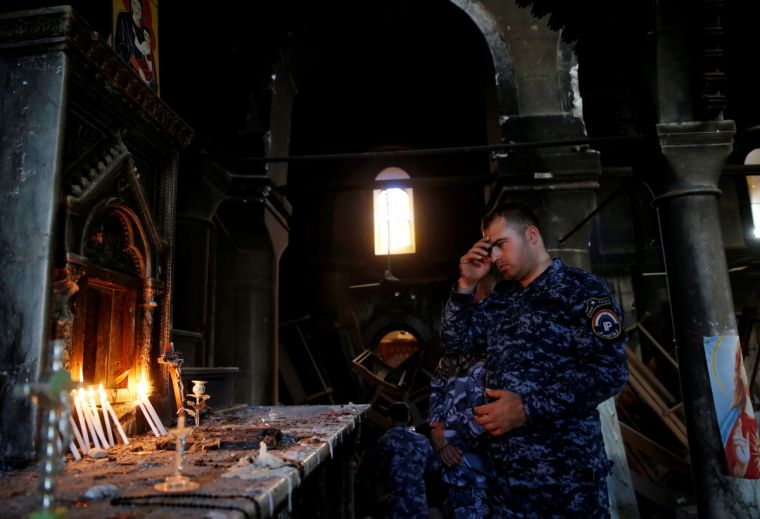Churches in Liberated Iraqi Christian Town Now in Ruins After 2 Years of ISIS Rule

A once-tranquil town in Iraq populated mostly by Christians is now in ruins after almost two years of occupation by the Islamic State (ISIS).
Residents of Hamdaniya located in northern Iraq are now grappling with the immensity of the destruction in the area after it was liberated recently by Iraqi-led coalition forces.
The town north-east of the Nineveh Governorate of Iraq was formerly the home of some 125,000 people — consisting of Arabs, Kurds and mostly Christians. Almost the entire population of Hamdaniya left the town to escape from ISIS, which took over the area in August 2014.
Residential areas have been reduced to ashes, commercial stores looted and demolished, and once-bustling streets now covered in debris and bricks. Residents said at least 70 percent of the town was destroyed by ISIS militants.
Among the structures that ISIS reduced to rubble are the Christian churches in the town. For instance, the Mar Gorgis Church was destroyed after it was used by ISIS militants as a bomb factory.
Amer, a Christian resident who decided to join the forces fighting the ISIS militants, described the church now as a "saddening view."
"This is where people came to pray, look what they have done to it," the Iraqi Christian told the Kurdish media organisation Rudaw.
Going around the Mar Gorgis Church, one will find stocks of missiles and piles of improvised explosive devices, which militants manufactured inside the place of worship as a shield against aerial bombing.
Salam Yaaqub, an Iraqi soldier, explained to Rudaw that the ISIS militants deliberately chose the church as its storage facility for explosives, thinking that airstrikes launched by other countries seeking to liberate Iraq from the terror group will spare the sacred place for Christians.
"It seems that they used many substances in their bombs, but we found large amount of sugar here which we think they used in their explosives," Yaaqub explained.
Although Hamdaniya has been liberated from ISIS rule, most of its residents are still in refugee camps.











